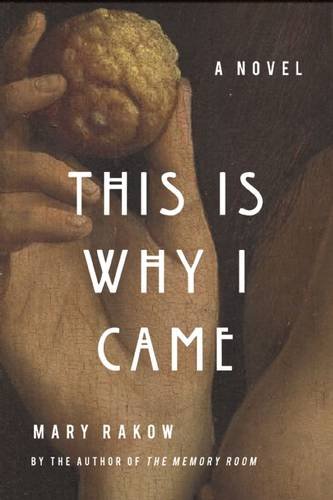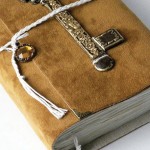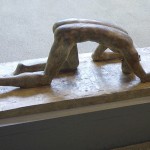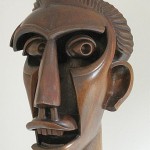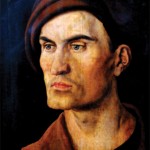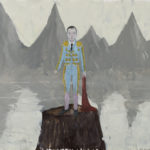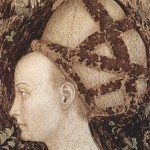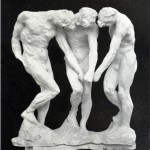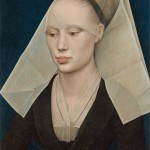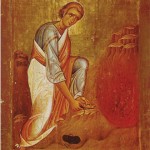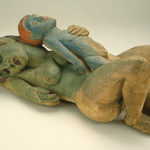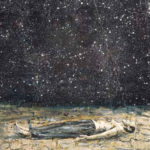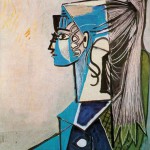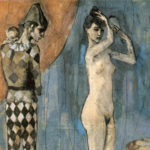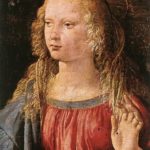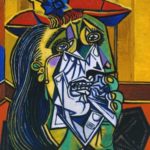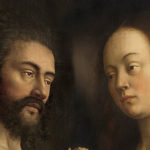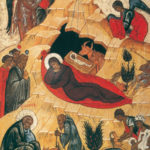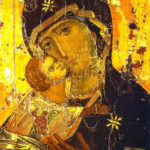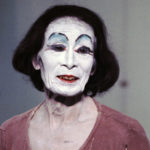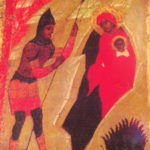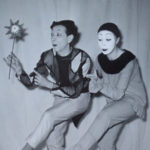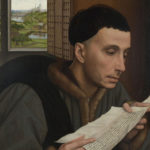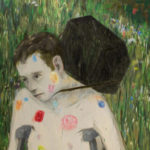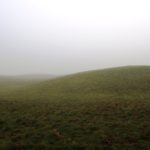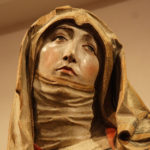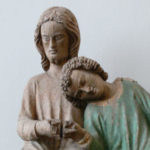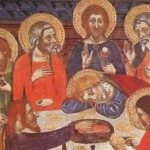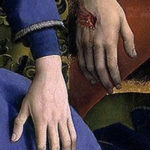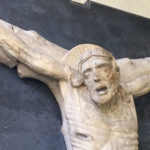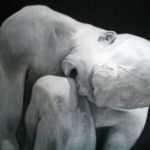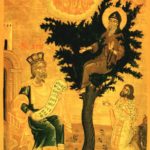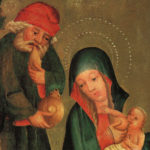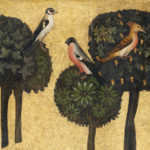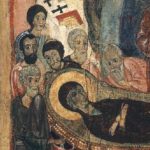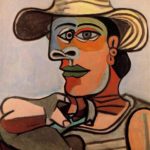Cain dreamt of a city and the dream grew around him like comfort. Alabaster staircases with graceful, shallow steps, tall white buildings like layered cakes, boulevards, lanterns, ballrooms, music halls, museums, a scriptorium with a gold- tiled vestibule, precise instruments, a fencing school, astronomy, tradesmen, mask-making shops, a jester, a harlequin, ivory beds, combs, pins and spoons. Irrigation canals, coats of arms, gymnasts competing in parks. He dreamt of diverse nomenclatures, sciences, precise theories of color, laws of motion. He would have a tea shop and serve cool drinks garnished with colorful paper umbrellas, honeydew and mint. He wanted smooth surfaces, glossy and promising, clarity, simplicity, the manufacture of elegant things, accouterments, precious objects with fine joints. Nothing with blood in it. Nothing with breath.
In the sumptuousness of the city, draftsmen and masons would build towers that reached Heaven. He would climb them with ease and would be able to speak to God that way. And God would say, “Cain, leave your sorrow and guilt here with me.” And he would at last be free of the burden he carried for the death of his brother.
So Cain left the land of his family and journeyed east, toward the sun.
But God came to Cain in a dream saying, “If you build towers to Heaven you will be like us.” And Cain woke from the dream and did not build his city with its towers and porticos, did not procure the skills of artisans and chefs, because he saw in God the jealousy that had poisoned his own heart and the heart of his brother.
Instead, he rose from his bed and, using the skills he already possessed, employing no one, made a garden. He fenced off the land and filled the enclosure with gravel, which would never die, and in this way he occupied himself, raking his garden year after year, making a small, elegant world without wheat or olive trees, blood or breath.
But one day, in this quiet activity, the future came vividly toward him.
He saw a city with canals and small islands and slim boats manned by men wearing striped shirts. Engineers had built homes, museums, restaurants, and some strong beautiful buildings with bell towers that reached to the clouds.
Inside were statues and paintings. In the damp climate painters learned that plaster did not set well so they shifted to canvas and wood. Cain saw one painting titled, “Cain Killing Abel” and cried as he raked because he did not recognize himself or his brother there and felt again the gap between himself and the world. The year was 1544 and people were dying in great numbers. The painter also died of the great plague and Cain noticed his tomb in a building called Iglesia de Santa Maria Gloriosa dei Frari.
He saw that, though towers were built, men and women did not climb them to talk to God but entered Santa Maria Gloriosa and other such buildings to lay their burdens down without climbing at all. He watched them go in and come out. Many seemed changed, as if possessing what he himself longed for. To feel light again, innocent and at peace. He called what people seemed to find in those buildings, “Forgiveness.” And he named the places where they seemed to find it, “Church,” “Temple,” “Synagogue,” and “Mosque.”
When the vision lifted and Cain was again alone with his gravel and rake, he felt how much he wanted to live in such a city, but he could no more transport himself into that future than he could into the deep past before Abel’s injury, when they were in the sweet field.
He found himself held in the sound of the gravel parting as he drew the fingers of the rake slowly through it and surrendered to the sound, his body heavy with the death of his brother. But then Cain heard a soft song coming from a land of ice and snow and blue light. A chieftain was dying and words came to him, which he sang, and the words then came to Cain as he raked more slowly still, setting the end of the rake in the groove he’d just made, all parallel, ordered, all bloodless and clean. The words of the snow king came into Cain’s garden and settled onto the gravel and then settled into Cain’s heart.
Hear me, smith of the heavens,
And heal me.
Drive out,
O king of suns,
Every human sorrow
From the city of my heart.
Buddhist monk raking gravel by Josh is licensed under CC BY 2.0 / recolored from original

